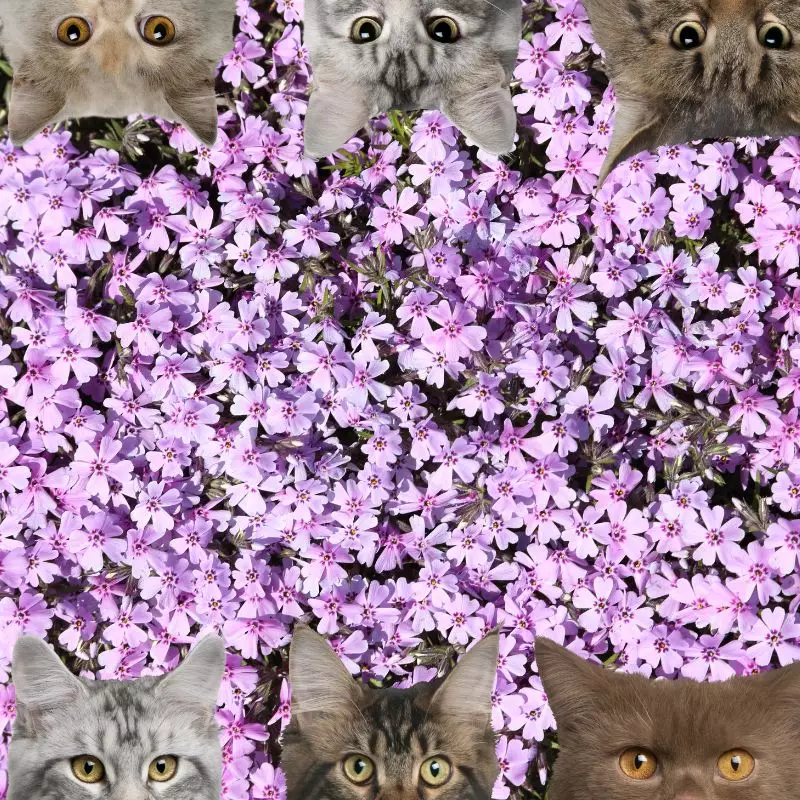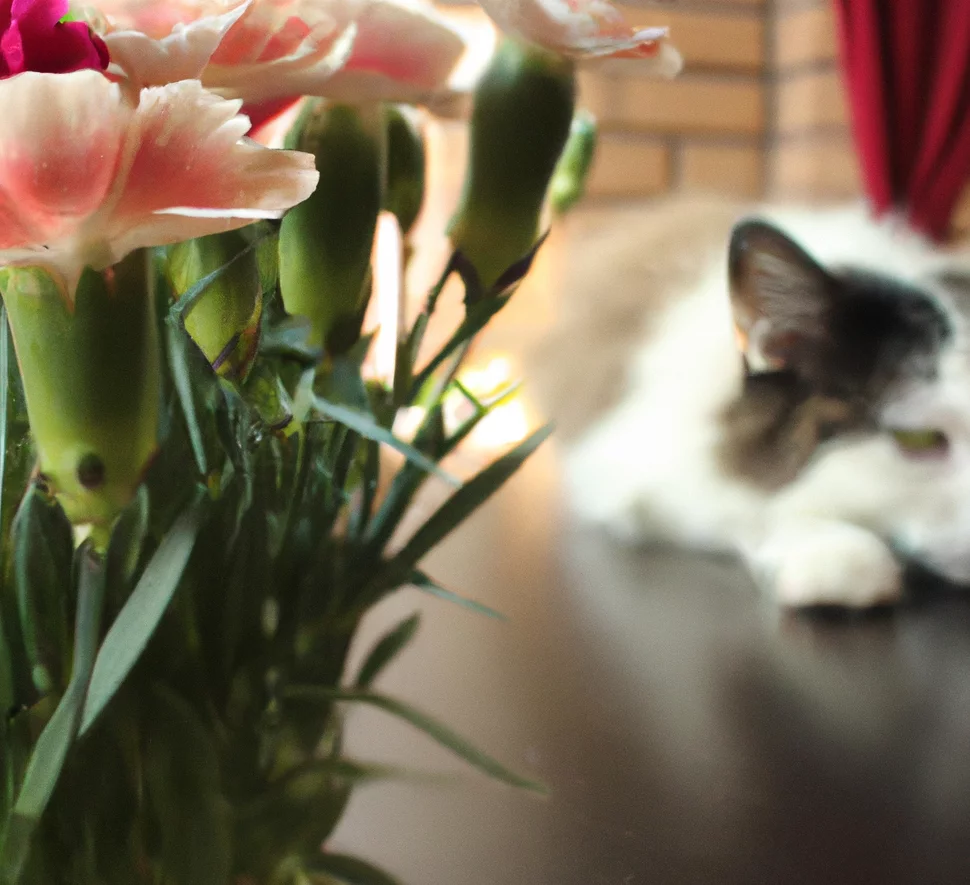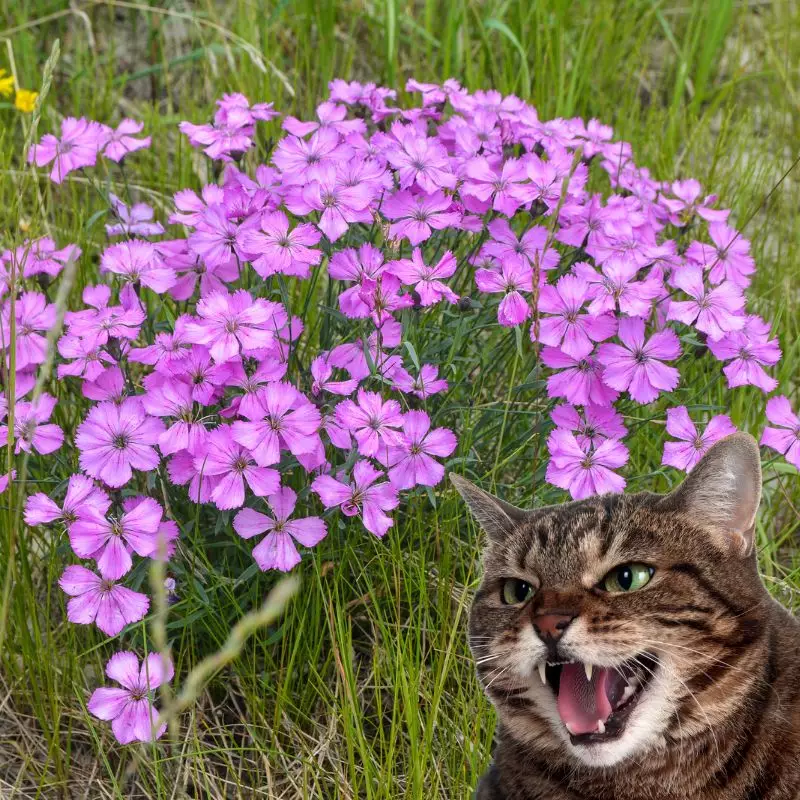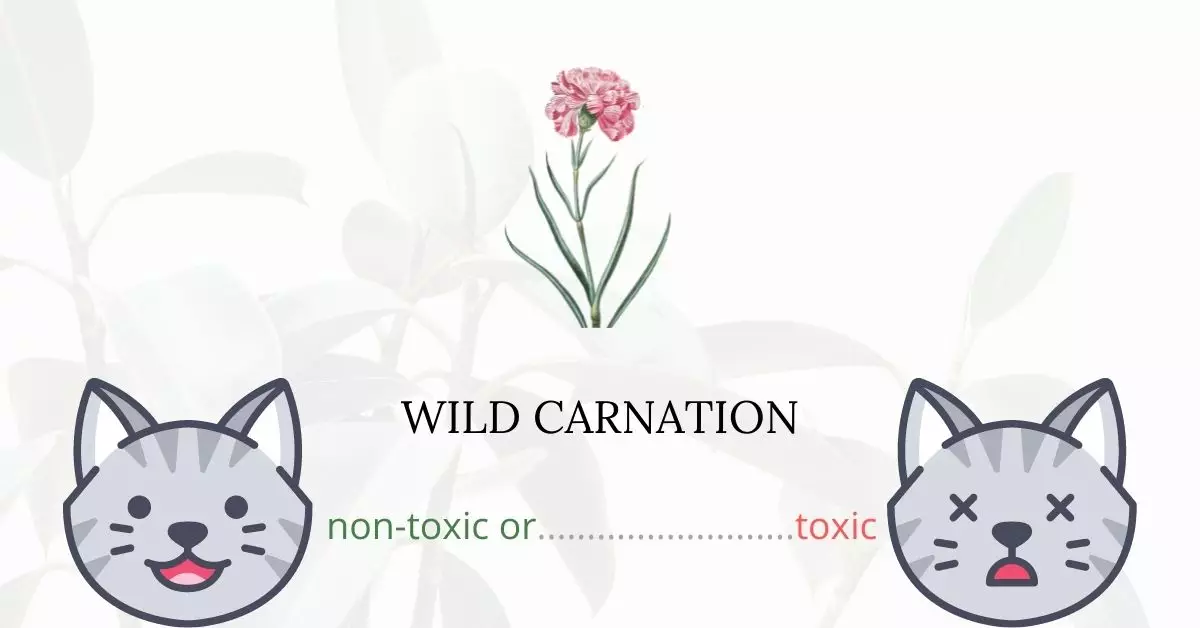Wild Carnations can indeed be toxic to cats. Ingesting these blooms may lead to poisoning, with the exact toxins being somewhat unclear. It is speculated that they may contain saponins, which can cause minor gastrointestinal discomfort even when consumed in small amounts. The specific parts of the plant carrying the highest concentration of toxins remain unknown, but symptoms typically manifest quickly, reducing the likelihood of cats consuming substantial amounts.
To ensure the reliability and accuracy of this article, we collaborated with a team of experienced Doctors of Veterinary Medicine (DVMs). Their extensive knowledge and insights have been invaluable in providing the most up-to-date and accurate information on the potential risks associated with Wild Carnations and their effects on cats. Furthermore, we have conducted extensive research on high-authority websites such as ASPCA and PetMD to validate every piece of information related to every plant discussed, thus ensuring that our readers receive the most trustworthy and precise advice.
Clinical Signs of Wild Carnation Poisoning in Cats

When a cat comes into contact with, smells, or ingests a Wild Carnation plant, several clinical signs may develop, typically manifesting within two hours of exposure. These clinical signs result from the body’s reaction to the potentially harmful substances present in the plant, which may include saponins. Saponins can irritate the gastrointestinal system, leading to discomfort and a variety of symptoms.
- Vomiting: This occurs as the body’s immediate response to expel the ingested toxic substance, helping to minimize the absorption of any potential toxins found in the plant.
- Drooling: The presence of possibly irritating substances in the Wild Carnation can lead to excessive salivation as the body tries to eliminate the irritants from the oral cavity.
- Loss of Appetite: The discomfort and irritation caused by the toxins may lead to a reluctance or refusal to eat.
- Diarrhea: The irritants in the plant can disturb the normal function of the gastrointestinal tract, leading to diarrhea as the body attempts to flush out the harmful substances.
- Excessive Itching and Mild Dermatitis: If the cat comes into contact with the plant, the skin might react to the irritants, leading to itching and inflammation, manifesting as mild dermatitis.
If you notice any of the above signs in your cat, it is crucial to seek veterinary attention immediately to ensure proper diagnosis and treatment. The rapid response is essential to prevent any long-term complications and to alleviate your pet’s discomfort swiftly.
First Aid and Treatment of Wild Carnation Poisoning in Cats

The usual treatment of plant poisoning involves the delivery of activated charcoal, the initiation of intravenous hydration therapy, and the provision of anti-emetics. In your cat’s stomach, activated charcoal can absorb undigested toxins and saponins. Intravenous fluid treatment aids in the correction of fluid imbalances, notably in dehydrated cats. Antiemetics will minimize vomiting in cats that are vomiting on a regular basis. Topical ointments or other medications to minimize skin irritation may also be used.
In extreme situations of wild carnation poisoning caused by bigger amounts consumed, your veterinarian will propose therapy depending on symptoms.
Recovery from Wild Carnation Poisoning in Cats

Cats with minor instances of wild carnation poisoning generally recover completely within four hours after being treated. Follow-up sessions are typically not necessary in moderate cases of wild carnation poisoning.
The prognosis for severe cases of wild carnation poisoning is uncertain. If your cat has serious symptoms or has consumed a considerable amount of wild carnation, your veterinarian may arrange follow-up appointments as needed.
Prevention of Wild Carnation Poisoning in Cats
Reduce or supervise your cat’s outside behavior to avoid becoming poisoned again in the future. It is usually a good idea to conduct some research on plants and flowers before purchasing them to guarantee they do not contain any hazardous elements for your cat.
If you love plants but have cats at home, check out these lists:





